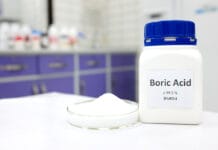Yes, ladies and gentlemen, it’s that wonderful time of the year again. Beginning in January, the whole 1099 or W2 debate is in full swing for dental hygienists who do temporary or fill-in work. Temp work is certainly a great way to make some extra income, network with other professionals in your area, and possibly learn new techniques from other offices. Temp work, though, can have some drawbacks, and how you are paid is a big one.
Why does it matter, you may ask? I will try to point out why it is important to be classified correctly before doing a temp job.
It’s important to know what to ask and expect from the dental offices you may work for regarding your classification as either an independent contractor or an employee and let that conversation take place prior to accepting the position. The IRS defines each classification:2
- People such as doctors, dentists, veterinarians, lawyers, accountants, contractors, subcontractors, public stenographers, or auctioneers who are in an independent trade, business, or profession in which they offer their services to the general public are generally independent contractors.
- You are not an independent contractor if you perform services that can be controlled by an employer (what will be done and how it will be done). This applies even if you are given freedom of action. What matters is that the employer has the legal right to control the details of how the services are performed.
In most states, dental hygienists work under the supervision of a dentist, see the dentist’s patients, and use the dentist’s equipment, whether it be a temp position or permanent position. Accordingly, dental hygienists are employees − period. As a dental hygienist, I am not a tax expert, but I believe these definitions are clear − in nearly all states, dental hygienists would be considered employees, not independent contractors.
The Reporting of Compensation
All compensation must be reported to the IRS, either by the employer or the independent contractor. The IRS requires businesses to issue 1099s to any contractor who earns more than $600 a year.4 With this said, dental hygienists are not independent contractors; therefore they do not fall in this category. If you work in an office and are paid as a contractor, then you are responsible for paying the entire 15% tax burden.
The responsibility for an employee who receives a W-2 is significantly lower because the employer is required to match the Social Security and the Medicare contributions. In addition, the hygienist, if classified as a contractor, loses state and federal worker protections such as worker’s compensation, unemployment insurance, and paid overtime. For example, if you have a contaminated needle or instrument stick and have been classified as an independent contractor, the doctor/office is not held liable to cover medical expenses as they otherwise would in this situation.
In short, you lose money and benefits you may be entitled to. Not a win/win situation. So, my suggestion is that, if you enjoy temping, continue to do so but be armed with the knowledge that you need to receive a W-2 for your work. Have a conversation with the dentist prior to accepting the position so that there are not any misunderstandings about what is expected.
What to Do If You Have Been Misclassified
In cases where you have been given a 1099 and misclassified, you can fill out the tax form SS-8. The SS-8 Form, Determination of Worker Status for Purpose of Federal Employment Taxes and Income Withholding can be filed by either the worker or the business.5 In this form, you essentially detail your job in writing, and then the IRS contacts the office for their description of your duties.
They will perform a limited audit of the office and will review the facts and circumstances and officially determine the worker’s correct status. If an employee is wrongly classified as an independent contractor, the business can be held liable for the employment taxes for the employee. It must be noted that it also could strain your relationship with the dental office and taint your reputation if you decide on this action. However, it will stop the cycle of misclassification and save any other hygienist who works for that office from being misclassified. It also sends a message to the employer to follow tax and employment laws.
In Closing
Misclassifying employees is illegal, and no one wants to have to deal with IRS issues. So, do it right the first go-round. If we all rally together and do not accept the misclassification of being labeled independent contractors but rather employees, we can help to stop the unfair labor practices that are going on now in our profession.
Before you leave, check out the Today’s RDH self-study CE courses. All courses are peer-reviewed and non-sponsored to focus solely on high-quality education. Click here now.
Listen to the Today’s RDH Dental Hygiene Podcast Below:
References
- Gao, C. 1099’s and W-2’s: If Your Boss Broke the Law, It Might Make Your Taxes Higher. National Employment Law Protect. April 13, 2018. Retrieved from https://www.nelp.org/blog/1099s-w-2s-boss-broke-law-might-make-taxes-higher
- Independent Contractor Defined. Internal Revenue Service. Retrieved from https://www.irs.gov/businesses/small-businesses-self-employed/independent-contractor-defined
- Understanding Employment Taxes. Internal Revenue Service. Retrieved from https://www.irs.gov/businesses/small-businesses-self-employed/understanding-employment-taxes
- About Form 1099-Misc, Miscellaneous Income. Internal Revenue Service. Retrieved from https://www.irs.gov/forms-pubs/about-form-1099-misc
- Independent Contractor (Self-employed) or Employee? Internal Revenue Service. Retrieved from https://www.irs.gov/businesses/small-businesses-self-employed/independent-contractor-self-employed-or-employee











